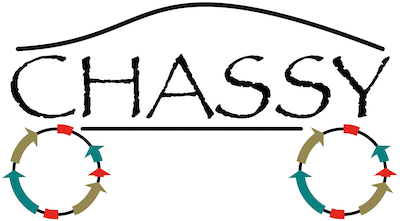CHASSY, a €5.6M Horizon 2020 Industrial Leadership project aimed at unlocking the full potential of yeasts as cell factories for production of high value compounds, makes a substantial contribution to the development of the bioeconomy.
Delivery of a sustainable circular bioeconomy needs efficient microbial cell factories that can replace fossil-resources for the production of high value compounds for the cosmetic, nutraceutical and white biotechnology sectors. CHASSY was established to address a key bottleneck that currently restricts the rate at which new yeast cell factories are commercialised. The problem has been that each new strain needs to be designed and built from scratch – which is slow and inefficient. The first objective of CHASSY was to overcome this by designing chassis strains, or platforms, into which new production pathways could be added. This was achieved in three different industrial yeasts, one suitable for a wide range of applications, a second more adapted to oleochemicals, and a third that is especially suitable for aromatic molecules. The second objective was to establish knowledge and technology to readily build and evaluate new chassis strains. This was accomplished though the development of new computational modelling tools (software) as well as a wide range of new synthetic biology tools and resources. The project also had a goal of building prototype cell factory strains that produce specific high value oleochemicals and aromatics with potential for commercialisation. This was successful and prototypes for both classes of molecules have been constructed and evaluated under industrial conditions.

A whole suite of new tools, analysis pipelines and data visualization resources have been created as part of this project and are available via publications, Github and Addgene. CHASSY Coordinator Professor John Morrissey describes the potential impact of these tools – “The capacity to engineer metabolic pathways in the yeast species Kluyveromyces marxianus and Yarrowia lipolytica is much greater now as a result of our work and outputs. Although we are using these resources, the larger impact will come from the adoption of our materials by research groups in the academic and industrial research communities.”
The CHASSY project which ended in May 2021 included 10 European partners and was coordinated by University College of Cork, Ireland. For more information on CHASSY visit www.chassy.eu and for questions about the CHASSY project, please contact Professor John Morrissey, University College Cork (J.Morrissey@ucc.ie).
This project has received funding from the European Union’s Horizon 2020 research and innovation programme under grant agreement No 720824.
Source
Supplier
Share
Renewable Carbon News – Daily Newsletter
Subscribe to our daily email newsletter – the world's leading newsletter on renewable materials and chemicals










